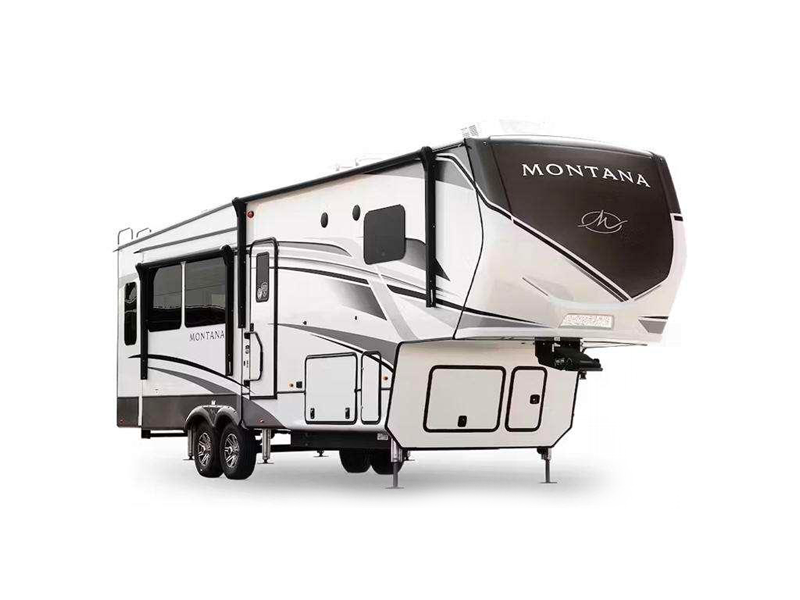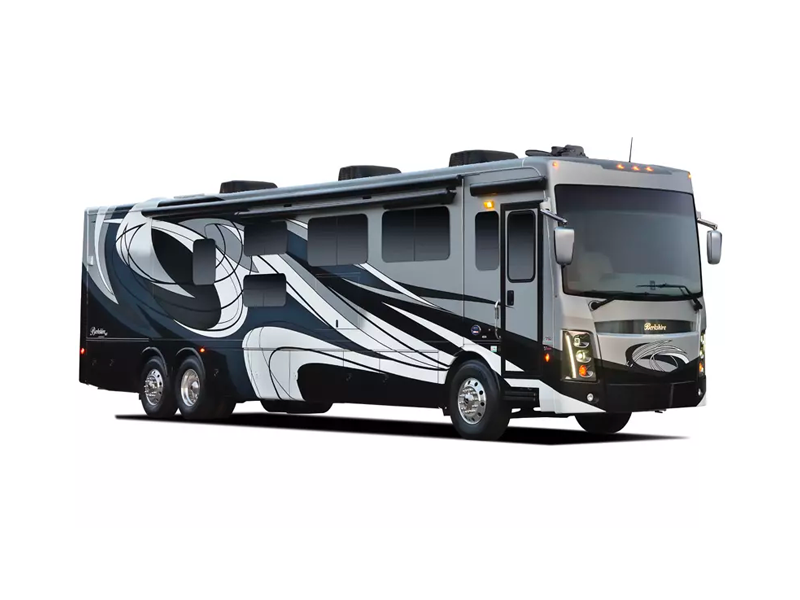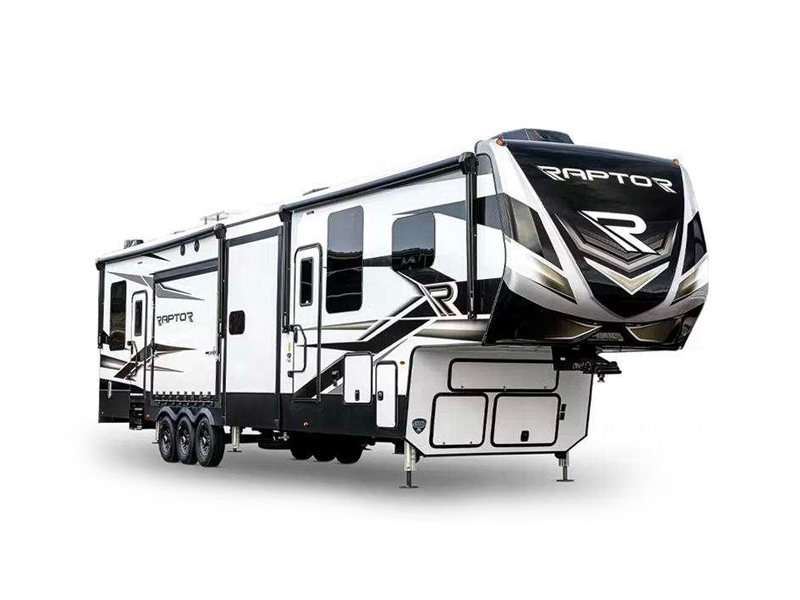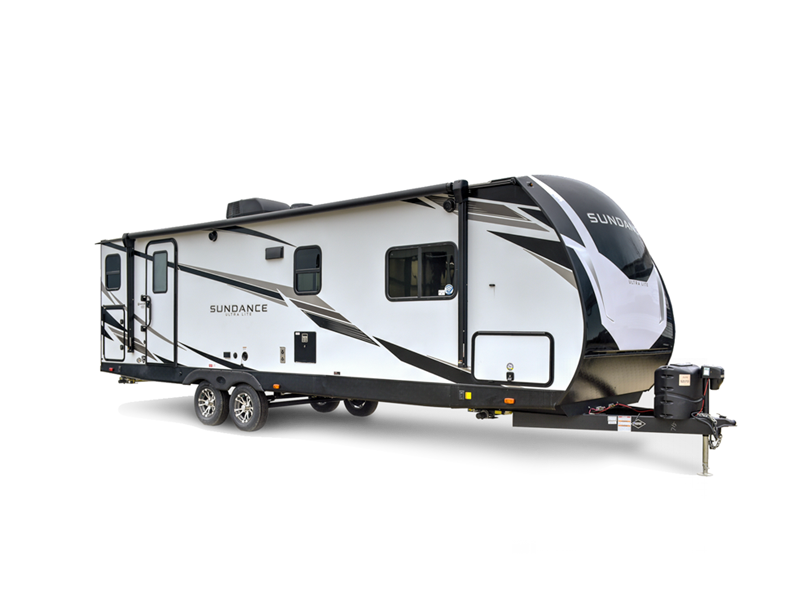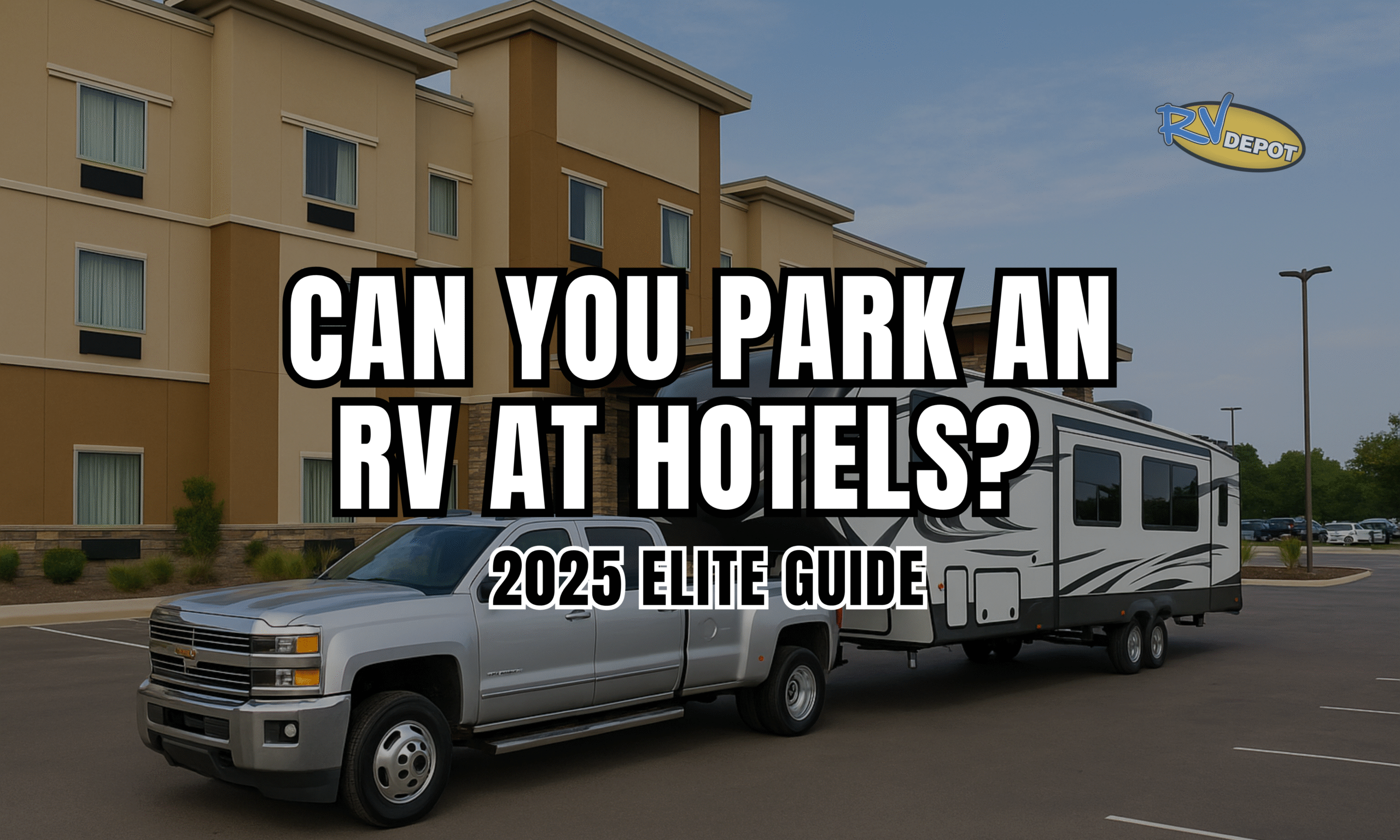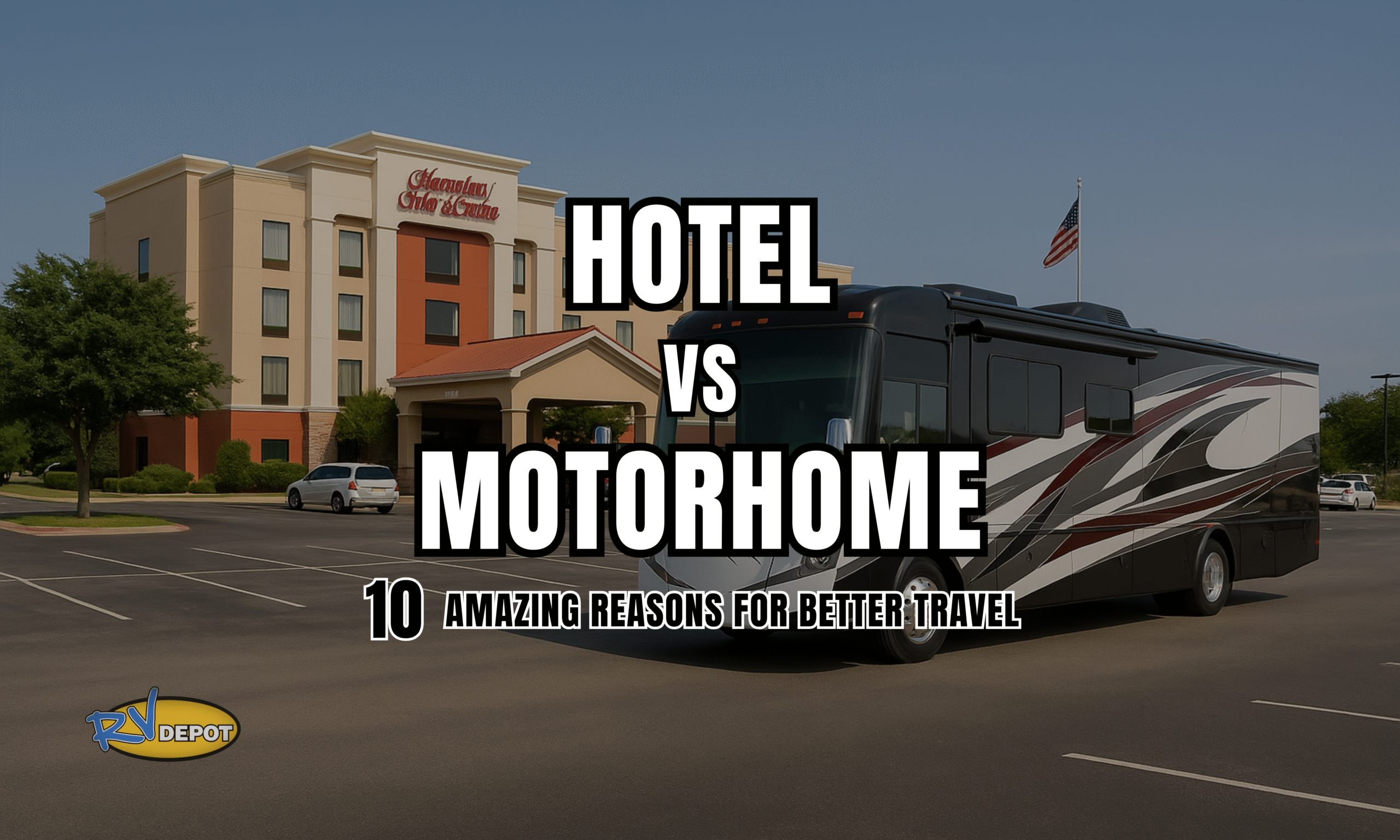You’re driving your 32-foot travel trailer when sudden storms hit, and that bright hotel sign ahead looks like salvation. But as you pull into the parking lot, reality sinks in fast. Your RV stretches longer than three parking spaces, and that hotel entrance looks impossibly tight for your rig.
This exact scenario plays out thousands of times each year as RV travelers discover the complicated truth about RV parking. While it seems logical that any hotel should welcome paying guests regardless of their vehicle, the reality involves space constraints, legal restrictions, and liability concerns that most hotel properties simply cannot overcome.
Understanding the real rules about parking RVs at hotel properties can save you from embarrassing situations, potential fines, and the stress of scrambling for parking in unfamiliar areas during emergencies.
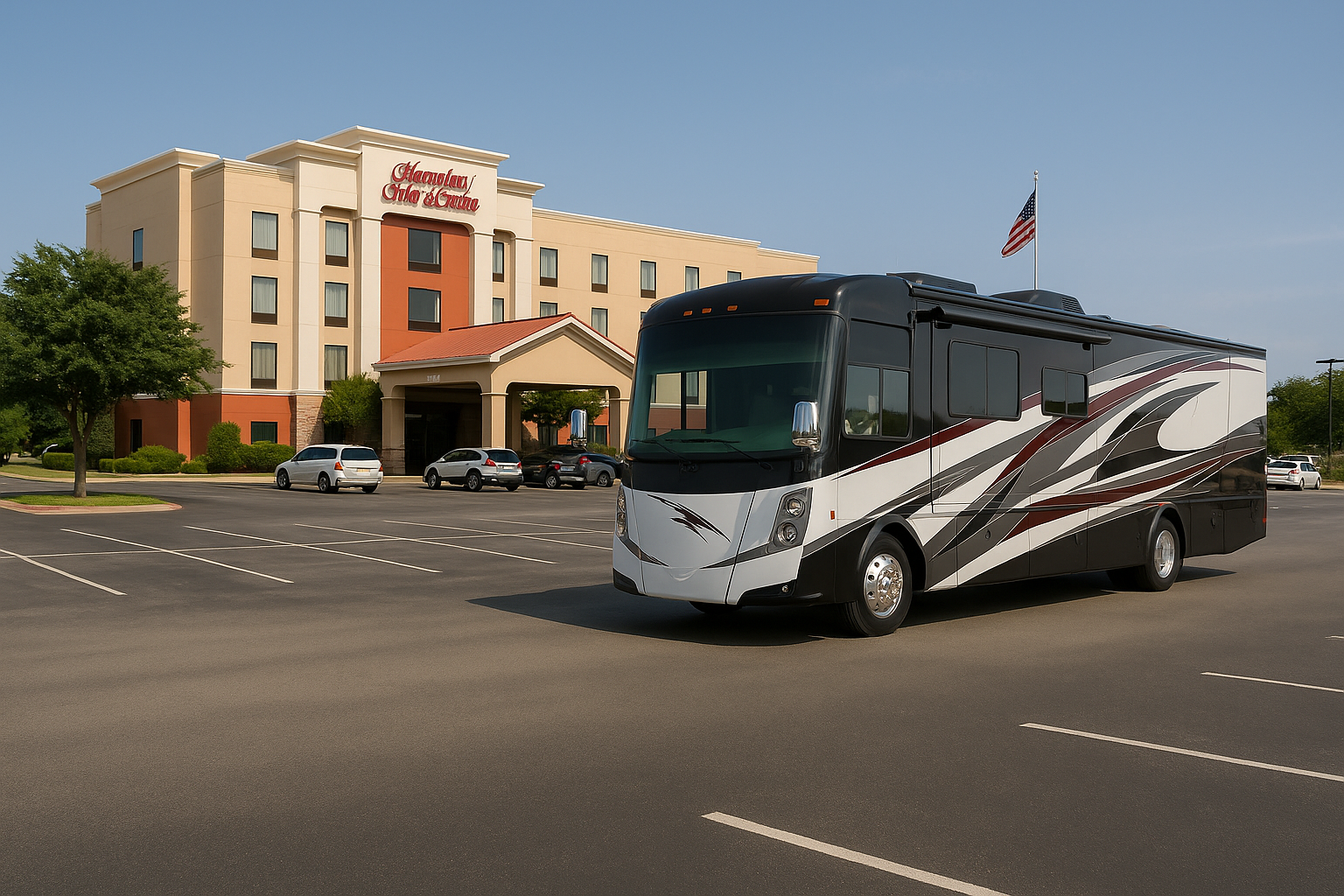
The Hard Truth About Hotel RV Parking
Why Most Places Say “No” to RVs
The typical hotel parking lot presents immediate challenges for RV accommodation. Standard parking spaces measure just 9 feet wide by 18 feet long, while modern RVs stretch 25 to 45 feet in length. The math simply doesn’t work when your travel trailer and truck combination needs nearly 40 feet of space.
Space isn’t the only issue plaguing hotel RV compatibility:
- Entrance clearances designed for cars create bottlenecks for 13-foot-tall motorhomes
- Turning radius requirements exceed most driveway capabilities
- Weight restrictions on parking surfaces not built for 20,000-pound vehicles
- Fire code violations when RVs block emergency access routes
Legal Roadblocks You Need to Know
Municipal ordinances often provide the definitive answer before management even gets involved. Many cities restrict RV parking in commercial zones, classifying overnight parking as illegal camping. California limits RV parking in most commercial lots to three hours during business hours, while Florida’s county-by-county regulations create a patchwork of restrictions that vary dramatically by location.
Fire departments maintain strict guidelines about vehicle spacing and emergency access that large RVs frequently violate. When a hotel allows RV parking that blocks fire lanes or exceeds vehicle concentration limits, both the property and the RV owner face potential fines and liability issues.
Hotel Industry Perspectives: Why They Can’t Help
Major hotel chains have developed corporate policies based on years of costly experience with RV accommodation attempts. Marriott International prohibits vehicles exceeding 25 feet on most properties, citing safety and liability concerns. Hilton hotel properties maintain similar restrictions, though individual properties may evaluate special circumstances case-by-case.
The financial reality drives these policies. A single RV occupies space for three cars, potentially forcing the hotel to turn away multiple guests during peak periods. The lost revenue often exceeds any benefit from accommodating RV travelers, making the business case for RV accommodation difficult to justify.
Insurance claims show higher accident rates when oversized vehicles mix with passenger cars in confined hotel parking areas. Property damage from inexperienced drivers maneuvering large RVs creates ongoing maintenance costs that their operators prefer to avoid entirely.
When Hotels Might Actually Say “Yes”
Rural and Tourist Area Flexibility
Places in RV-heavy regions sometimes bend the rules more than urban locations. Gateway communities near national parks often encounter RV travelers regularly and may have developed informal policies for handling oversized vehicles during slow periods.
Western states with strong RV tourism markets tend toward more accommodating approaches. Properties in towns like Moab, Utah, or Jackson Hole, Wyoming, frequently work with RV travelers because they represent significant seasonal revenue.
Casinos present unique opportunities where RV parking becomes feasible. Gaming properties often feature expansive parking lots designed for tour buses and may welcome overnight RV parking for customers who patronize their restaurants and gaming facilities.
Factors That Increase Your Chances
- Off-peak seasons when parking demand drops
- Rural locations with oversized parking areas
- Tourist destinations where RVs are expected
- Owner-operated properties with flexible decision-making
- Emergency weather situations where managers use discretion
Special Arrangements Some Hotels Offer
- Overflow parking areas during low-occupancy periods
- Back lot parking away from main guest traffic
- Event-based exceptions for weddings or reunions
- Extended stay arrangements for business travelers
Fees and Hidden Costs
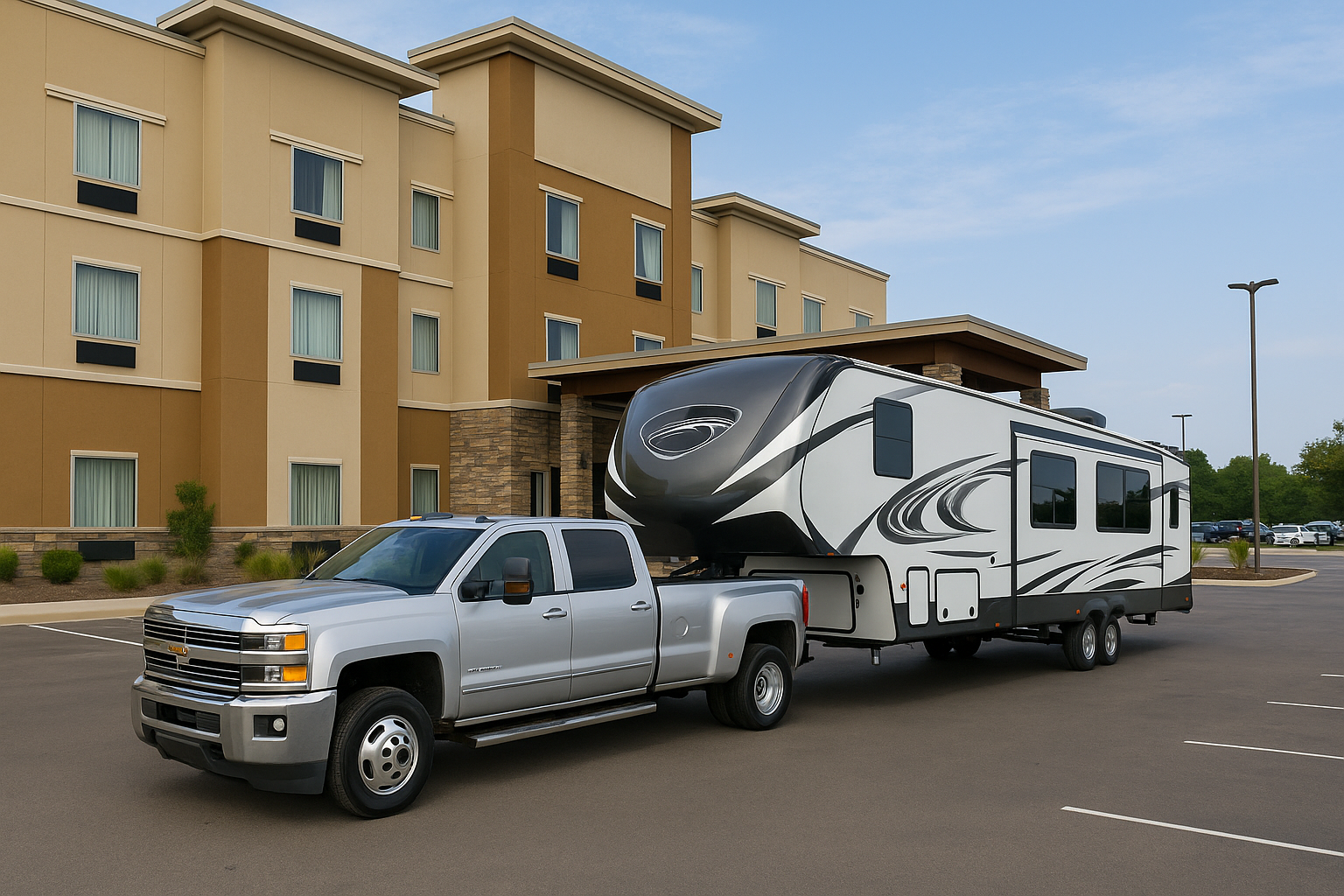
When Hotels Do Allow RVs
Hotel properties that accommodate RVs typically charge additional fees based on space occupied, duration of stay, RV size, and amenity usage. Typical fee structures range from $10-50 per night on top of standard room rates, though some properties charge significantly more during peak seasons.
Watch Out for These Additional Costs
- Damage deposits for potential property damage
- Insurance requirements for liability coverage
- Municipal fines if local ordinances are violated
- Towing costs if parking becomes problematic
Essential Steps Before Arriving
Research and Communication Protocol
Never assume an establishment can accommodate your RV. Always call ahead and speak directly with management about your specific situation.
Information you need to provide:
- Your RV specifications (length, height, weight)
- Planned arrival and departure dates
- Special circumstances (weather emergency, mechanical issues)
Critical questions to ask:
- “What’s the maximum vehicle length you can accommodate?”
- “Are there height restrictions in your parking areas?”
- “Do local laws allow RV parking on your property?”
- “What additional fees apply for RV parking?”
- “Where exactly would I park my RV?”
Get Everything in Writing
If they agrees to accommodate your RV, request confirmation via email. This protects both parties and ensures clear understanding of any special arrangements, fees, or restrictions that apply to your stay.
Regional Patterns Across America
Urban hotel properties almost universally cannot accommodate RVs due to space constraints and strict local regulations. Rural hotel properties offer more flexibility, particularly in areas where RV travel represents significant economic activity.
Southern and western states generally show more RV accommodation flexibility, while northeastern urban areas maintain the strictest restrictions. Tourist gateway communities near national parks or major attractions often develop the most creative solutions for RV travelers.
Making Smart Accommodation Decisions
The key to successful RV travel lies in realistic planning rather than hoping every hotel will accommodate your rig. Understanding when hotel stays make sense—and when they don’t—prevents disappointment and ensures safer, legal parking arrangements.
Consider these planning factors:
- Weather conditions and seasonal challenges
- Urban versus rural destinations
- Specific amenity needs beyond basic lodging
- Budget implications of hotel fees plus RV parking costs
Expert Guidance from RV Depot

At RV Depot in Cleburne, Texas, our three decades of helping RV travelers has taught us that accommodation planning starts with realistic expectations. New RV owners often assume every hotel will welcome their investment, creating unrealistic travel expectations that lead to problems on the road.
Our customer education includes practical travel guidance because RV size significantly impacts your accommodation options. Today’s larger motorhomes exceed most hotel capabilities, making alternative planning strategies essential for successful trips.
We’ve built relationships throughout the Texas RV community that allow us to provide specific guidance about which properties might accommodate RVs under special circumstances. This knowledge proves invaluable for customers planning extended trips or those new to RV travel logistics.
Understanding hotel limitations while planning appropriate alternatives enhances rather than complicates your travel experience. The freedom that RVs provide comes with different considerations that, when properly addressed, create opportunities for memorable adventures.
Ready to discuss how RV size and features impact your travel flexibility? Contact RV Depot at (817) 678-5133 to explore how the right RV choice can enhance your travel options while preparing you for real-world accommodation realities.
RV Depot’s 30+ years of customer experience has taught us that successful RV travel requires understanding both opportunities and limitations of different accommodation options. Our Cleburne, Texas team provides expert guidance on choosing RVs that enhance travel flexibility while preparing you for road trip logistics.

